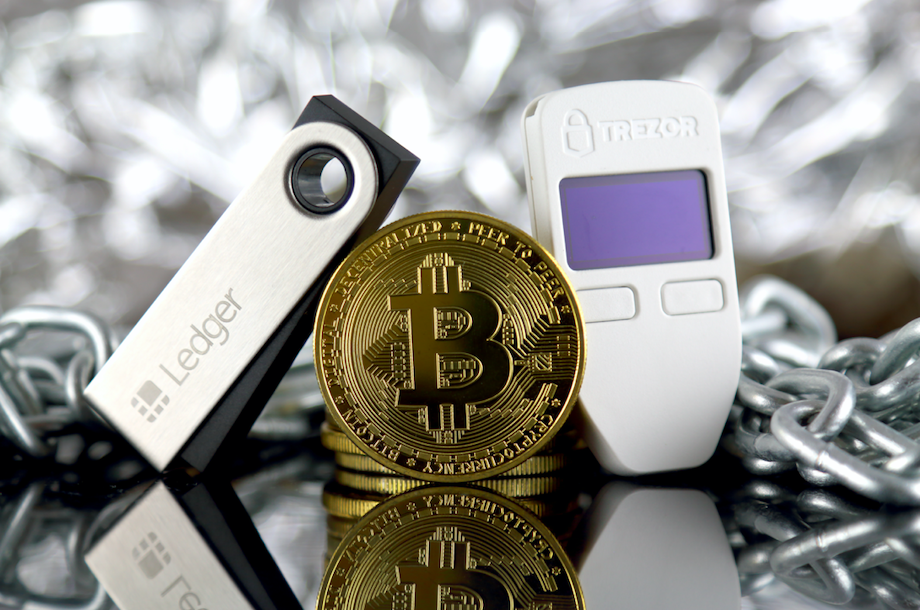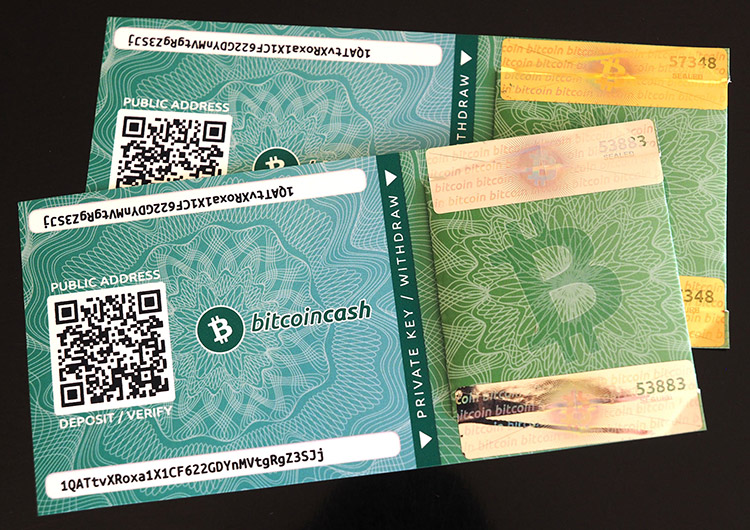There are a vast number of different wallets in the new cryptocurrency community: from desktop to mobile. Developers urge to download their wallets. Therefore, it is essential to choose a place to store your cryptocurrency savings correctly.
In this article, Changelly will consider the types of wallets and explain which crypto wallet to choose.
Table of Contents
What Is Cryptocurrency Wallet

Crypto wallet is a program that stores private and public keys and also interacts with various blockchains. Cryptocurrency is stored in the wallet in the form of transaction records. Users need wallets for storing, exchanging, and conducting transactions with digital currencies.
The storage of any cryptocurrency is based on the principle of public and private keys. A public key is a means of identifying a bitcoin wallet like its address, while a private key is a confidential information that gives access to the funds stored in the wallet.
The sender transfers ownership of the crypto coins to you. To access them, the private key stored in your wallet must match the public key to which the digital currency is tied. After this, a record appears on the blockchain that the transaction has been completed.
Hot vs. Cold Crypto Wallets
Cryptocurrency wallets can be either hardware (it is also called cold) or digital (hot).
Hot wallets are storage where the private key is stored on the Internet or devices connected to the network. Large exchanges can hold such wallets, so some Currency.com clients have a “hot wallet” that is securely protected by the company and has a private key. There are also hot wallets that are stored on computers or phones that are connected to the Internet.
Cold wallets are more reliable: they are a particular program or even a separate device that stores your data regardless of the network. You won’t be able to quickly use such a wallet: to pay with cryptocurrency or bring it to the exchange.
You will need to wait for confirmation of transactions from several network users, which can take several hours. Given the high volatility of cryptocurrencies, their price can change by several thousand dollars during this time.
Types of Cryptocurrency Wallets
To choose a crypto wallet, you need to understand their types. They differ in how they store private keys and the device on which you want to save them. Also, cryptocurrency wallets are divided into multi-currency and support transactions with only one digital currency.
Software Crypto Wallets
There are several types of software wallets: desktop, mobile and online.
A desktop wallet is a program that can be downloaded to a desktop computer or laptop. Access to the wallet is only from the device where it is installed.
Desktop wallets are thin and thick. The first involves downloading only the program for the wallet. Transaction information is stored on another server. In the case of thick wallets case, both the program and the blockchain are downloaded to the computer.
In mobile wallets, the working scheme is the same as for wallets for PCs, except that you can always carry a smartphone or tablet with you. They are considered quite vulnerable due to many hacks.
By the way, we have the articles with a selection of crypto wallets for both iPhone and Android.
Online wallets work in the cloud or on specific web resources (for example, cryptocurrency exchanges) accessible from any device connected to the Internet.
At first glance, this could be an ideal option altogether – an external resource, you do not need to install any software at all (everyone has browsers) or equipment, everything is stored in one place, excellent access conditions, you only need the Internet.
However, there is a flip side to the coin. The keys stored in one place and the cryptocurrency itself, with relatively free remote access, are an excellent and desirable direction for hackers to attack.
Find out the wallet that suits you the best among Changelly’s best crypto wallets.
Hardware Crypto Wallets

Hardware wallets are cryptocurrency wallets where transactions are made online, but private keys are stored on a physical medium (for example, a USB flash drive). Using them is simple: you need to connect the storage medium to a computer with Internet access, enter the PIN code, and perform the necessary actions.
The most popular hardware wallets are Ledger Nano and Trezor. Changelly has already talked about the pros and cons of such wallets in an article about the best hardware wallets.
Paper Crypto Wallets

Paper wallets are considered the most secure. They are generated using a unique program. Private and public keys are printed on paper – in the form of a QR code or a set of numbers and letters. To make any manipulations with the wallet, you need to scan the code or enter the keys yourself.
Paper wallets are easy to create, but there are some downsides to such storage. Such wallets quickly deteriorate, so most often, they are usually laminated. If you lose the key to such a store, then you can never restore your crypto assets.
If you still find this method of storing cryptocurrencies attractive, a guide by Changelly will help you create and use a paper wallet.
Choosing a Wallet: Tips
When choosing a cryptocurrency wallet, you need to pay attention to the following points:
- Anonymity during verification. Everyone has their requirements for identity documents.
- Reliability of protection against hacking, data safety.
- Convenience and functionality of use. At this point, I pay attention to the speed of operations, user-friendly interface.
- Multicurrency.
For your convenience, Changelly has collected the best wallets suitable for various cryptocurrencies. Select the desired cryptocurrency from the list and read more about specific wallets.
Bottom Line
In conclusion, it’s hard to give specific advice on choosing a particular wallet. It all depends on your personal preferences, operating conditions, planned amounts, transaction frequency, and so on.
For a competent choice, it is worth consulting with an experienced professional in the field of cryptocurrencies. Also, try to read more users’ reviews in specialized forums and chats.